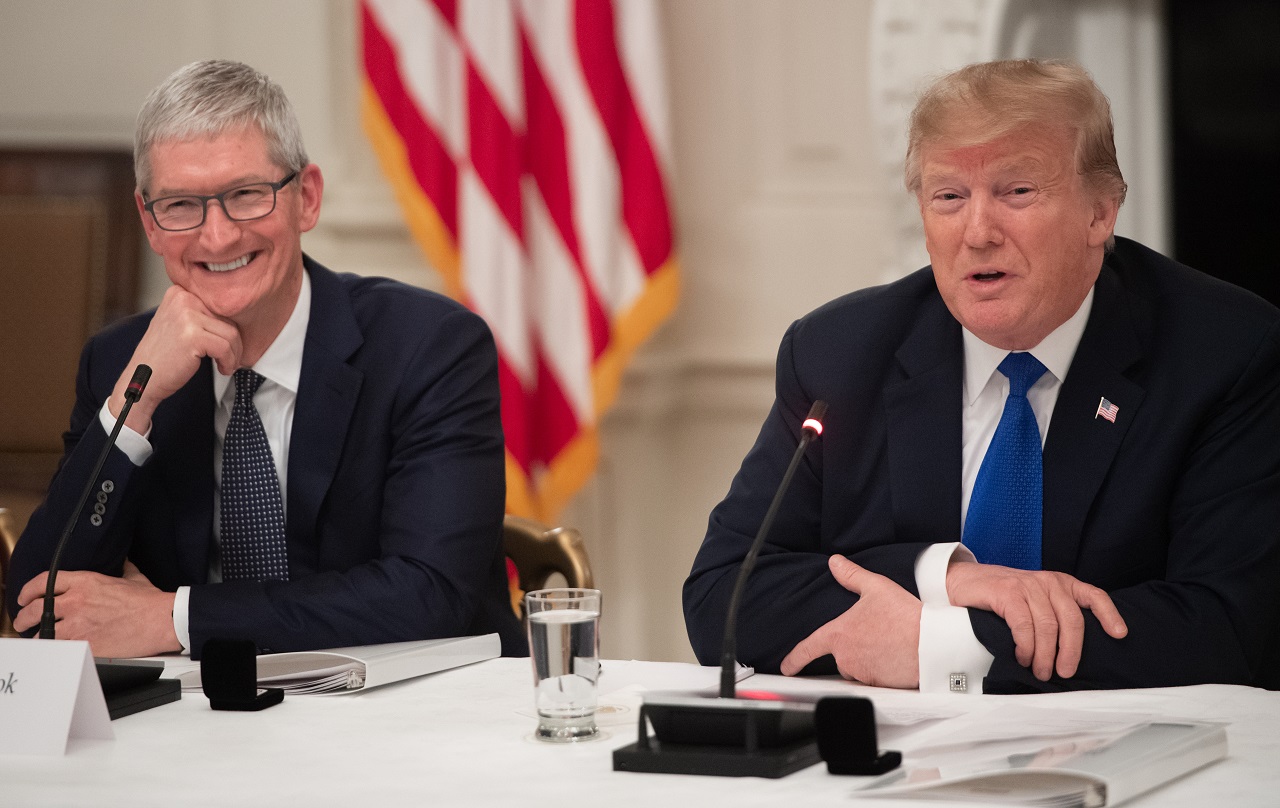
Apple CEO Tim Cook achieved what many corporate leaders struggled to accomplish: he forged a personal connection with Donald Trump during his presidency.
This unique relationship, cultivated through direct engagement and carefully planned interactions, enabled Cook to influence policy decisions benefiting Apple. Now, as Trump prepares for another term, other executives are keen to replicate Cook’s strategy, according to reports from The Wall Street Journal.
Cook’s approach centered on simplicity and directness. Eschewing lobbyists and government relations teams, Cook made personal appeals through calls and meals. He honed a method of focusing discussions on one key data point, keeping meetings with Trump concentrated on specific goals. This strategy paid off, particularly during pivotal moments such as the 2017 tax reforms and the 2019 tariff negotiations.
How Cook Delivered Results for Apple
In 2017, Cook leveraged his influence to secure a favorable tax rate for repatriating $250 billion of Apple’s overseas profits. Trump highlighted Apple’s plans for increased U.S. investments while promoting the tax plan. In 2019, Cook successfully lobbied against proposed tariffs that would have impacted Apple’s bottom line, arguing they would benefit competitors like Samsung. Days later, the Trump administration scaled back its tariff plans, sparing key Apple products.
Cook’s rapport with Trump also included gestures that allowed Trump to take credit publicly. For instance, Trump claimed Apple opened a manufacturing plant in Austin, Texas, though the facility had been operational for years under a contractor. Cook and Apple did not correct the claim, which further solidified their relationship.
Following in Cook’s Footsteps
As executives aim to emulate Cook’s playbook, challenges abound. Few leaders or companies possess Apple’s brand recognition or Cook’s ability to align corporate interests with Trump’s agenda. Even gaining access to Trump’s schedule can prove difficult without pre-existing connections. Notably, Boeing CEO Kelly Ortberg and FedEx Chairman Fred Smith have tried engaging directly with Trump, with mixed results.
Some companies are exploring alternative avenues to gain favor. For instance, Elon Musk’s Department of Government Efficiency (DOGE) may serve as a new channel for influencing policy. Others are leveraging trade groups, lobbyists, or venture capitalists connected to Trump’s orbit.
However, the risks of pursuing such relationships are real. Engaging with a high-profile administration can backfire if public sentiment shifts or if the executive fails to deliver mutual benefits. As Ron Williams, a former Aetna CEO, noted, building meaningful relationships takes time and strategic effort.
Despite these hurdles, Cook’s success story continues to inspire. His ability to distill complex issues into actionable discussions and build trust underscores the importance of a calculated approach. With Trump’s 2024 win reigniting corporate interest, Cook’s methods may serve as a blueprint for navigating high-stakes political landscapes.
Featured Image courtesy of SAUL LOEB/AFP via Getty Images
Follow us for more tech news updates.
